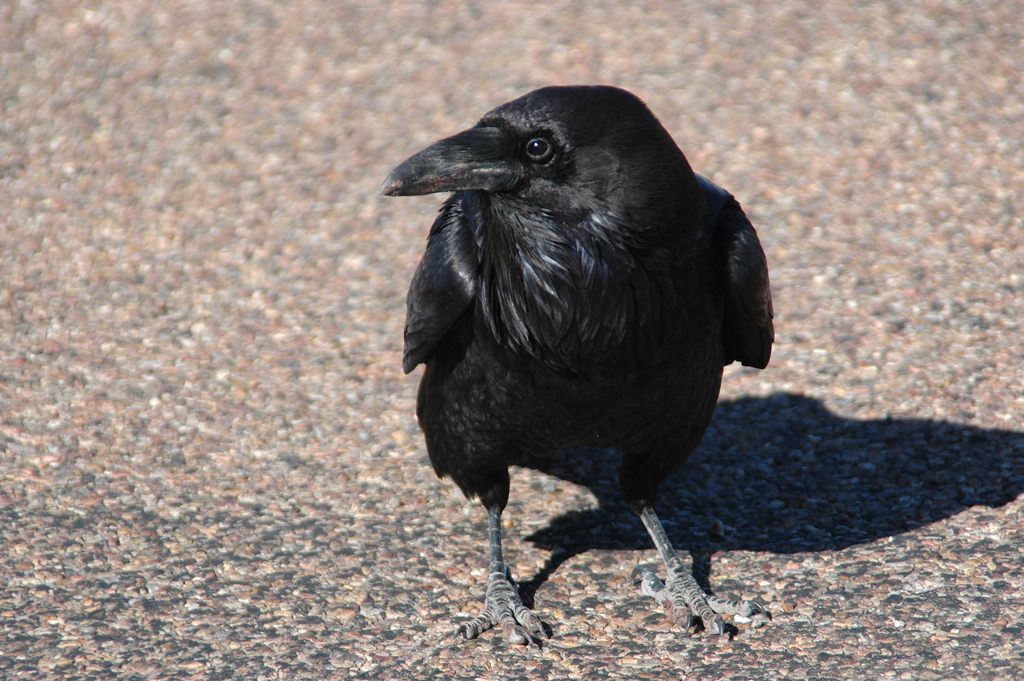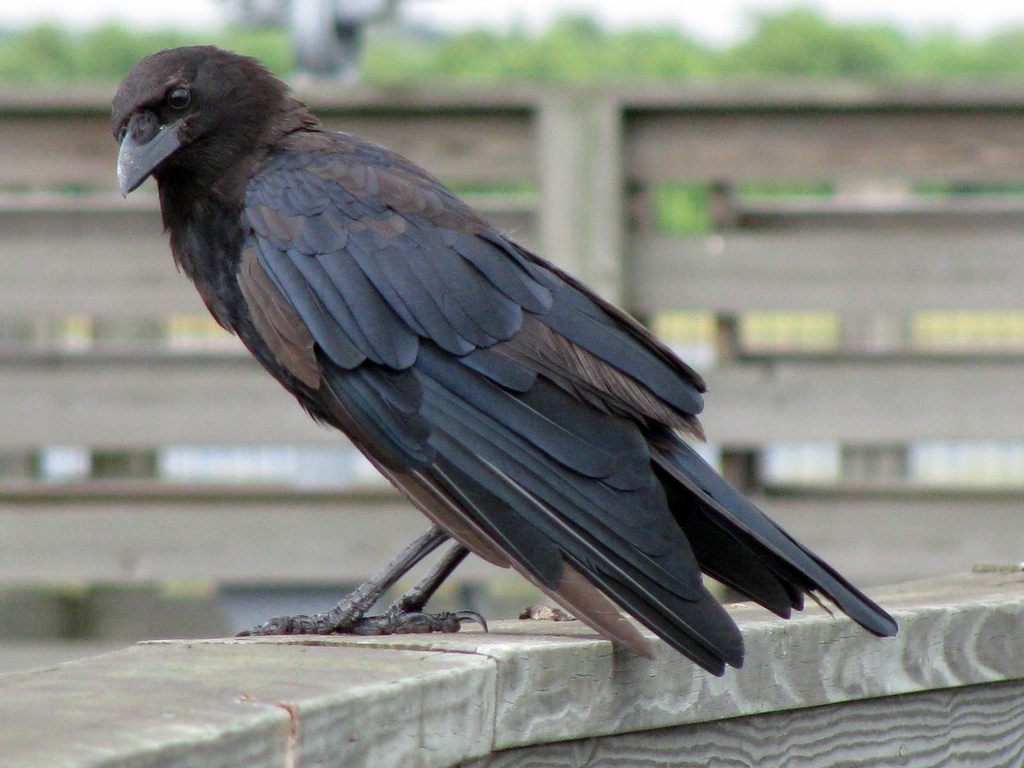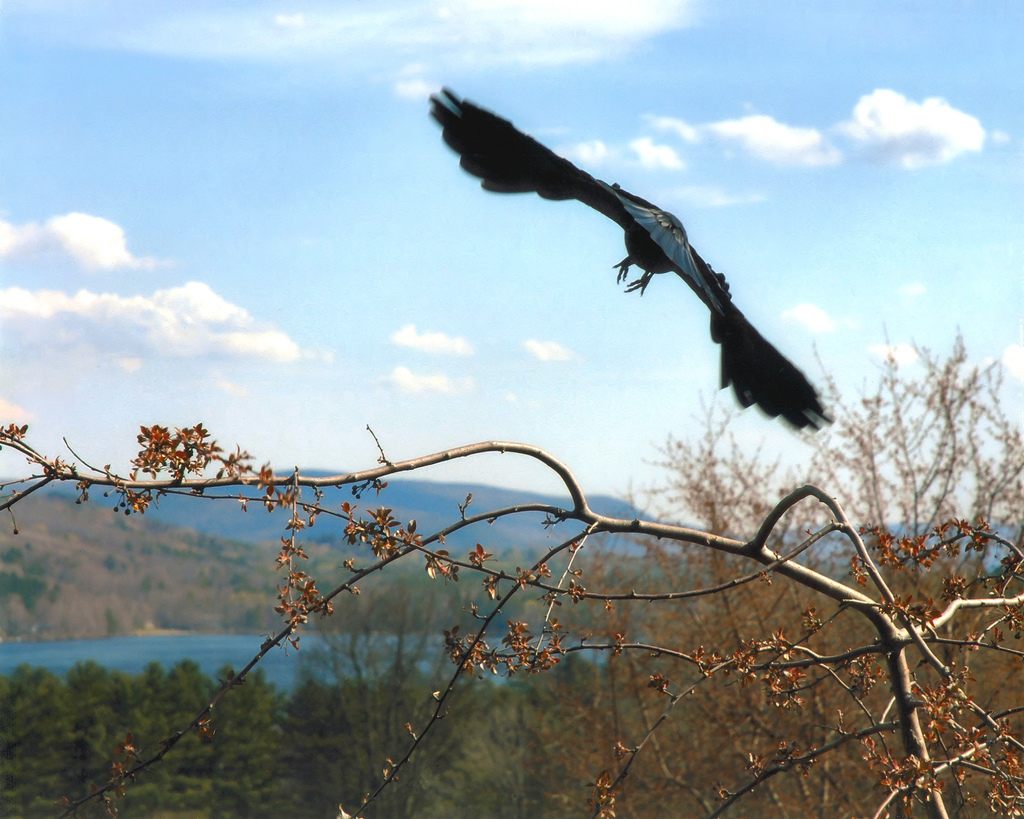Crows Are Smart, But Are They Smart Enough to Fall in Love?

Are you smarter than a fifth grader? Well, it’s complicated. (Image: anyjazz65/Flickr)
Whether crows are bringing a little girl gifts, putting some English majors to shame, or learning to remember faces, the birds just continue to amaze us with their intelligence. Many studies and stories compare their smarts to those of human children. But judging intelligence can be a difficult proposition with humans, let alone birds. So really, how smart are crows, and could they do the things our kids can do?
To find out, we asked some expert corvid researchers—corvids being the bird family to which crows belong—whether crows could accomplish some basic human tasks, like reading, doing math, and falling in love.
Professor of Behavioural Ecology at Oxford’s Department of Zoology, Alex Kacelnik, has been studying the behavior of the New Caledonian crow for 15 years now, looking at their use of tools and remarkable ability to solve problems. “The key to [animal intelligence] is flexibility,” he says. “We only use the term ‘intelligent’ for animals that are capable of doing a variety of different things that they have not necessarily been selected to do.” Kacelnik says that crows (and parrots, too) are masters of this type of adaptive thinking, with various species being able to use tools to reach food or make use of their precision memory skills to hide—and later find—their reserves. “In the case of parrots and crows, there’s a large class of problems they can face which are not necessarily those they face in nature,” Kacelnik says.

Yes. He is memorizing your face. (Image: katieb50/Flickr)
Kaeli Swift, a PhD student in the School of Environmental and Forest Sciences at the University of Washington, and author of the Corvid Research blog, further elaborates: “There’s a main cognitive ‘toolkit’, so to speak, that we look to when asking questions about the evolution of intelligence,” she says. “These tools include: causal reasoning, flexibility, imagination, and prospection.”
One reason corvids are so smart is that they have relatively giant brains. The size of a crow’s brain has been compared to the size of a human thumb, which, in comparison to the size of their bodies, is massive. “They also have an enlarged forebrain compared with most birds,” says Swift. “The corvid forebrain is what houses the avian analogues to the human prefrontal cortex, i.e the area that’s the powerhouse for human cognition and problem solving.” However, Kacelnik says, we are not sure why they developed such large brains, or what environmental stimuli would have favored such an evolution. Nonetheless, their grey matter makes the term “bird brain” seem like a compliment.
So we know crows are smart, but if we are going to continue to compare them to children, let’s cover some basics. Could a crow learn to read? “You certainly could teach a crow a complex response to stimuli,” says Kacelnik. “But if you call ‘reading’ understanding words and having syntax, this has not been shown.” As robustly intelligent animals crows can remember symbols and learn to react differently to them, but understanding the infinitely complex combination of symbols and meanings that make up human language is beyond them. “[It’s] possible that they could recognize a few words with extensive training but it would be more akin to learning that pecking the circle symbol instead of the square results in a treat, rather than the kind of reading comprehension we possess as humans.” says Swift. Children: 1, Crows: 0.
How about simple math, like addition and subtraction? Crows have it covered, sort of. “We know that many animals in general have to operate in real life as innate statisticians,” Kacelnik says. All animals, crows included, need to be able to measure, not necessarily hard numbers, but the relative frequency of finding things like food and water. Though there does seem to be evidence that crows might have the ability to count. Swift mentions an experiment from the 1950s that showed that western jackdaws (a type of crow) could essentially notice and remember the number of treats the researcher placed under a larger number of boxes, only uncovering the boxes until the exact number of treats was discovered. “Studies in numerosity in corvids have not been that extensive,” Kacelnik says. “But I would eat my hat if they couldn’t do some simple mathematical operations. The question is up to what level of complexity.”
And what of their emotional intelligence? Can crows fall in love? “I don’t know about love,” Kacelnik says. “They form attachments that are of a sexual nature and they form attachments that are purely of association, like foraging partnerships.” This is known as affiliative behavior, and among many species of crows their ability to form multiple connections to other individual crows is surprisingly robust. Both mating pairs and entire family units can be very stable and organized among the birds. But as Swift puts it, “We don’t, and probably can’t, know if they fall in love like we consider it.” The majority of crows, though, will mate for life, even if one is injured.

Later, haters. (Image: Heather Katsoulis/Flickr)
Just for good measure, we asked whether, given a machine designed specifically for the purpose, a crow could drive a car. “I have no idea,” Swift says. “But in some areas they do seem to be sensitive to crosswalk singles as evidenced by this delightful video. This has not, to my knowledge, been tested scientifically.” This was a silly question.
Crows might be as good as human children at some things, but in the end, it doesn’t make sense to compare them. “As biologists we prefer not to rank species in order of intelligence,” says Kacelnik. “Because they are good for different things. A pigeon would be better at homing and navigating than a crow would be. But a crow is better at solving new problems. Humans call this intelligence because that is what we are good at.”
Crows are wildly intelligent, not just for birds, but for animals in general, and the more we learn about what they are capable of, the more astounding they seem. But as with all creatures, including human children, they are good at what they’ve been environmentally selected to be good at. Comparing bird smarts to people smarts is as ridiculous as the image of a lovelorn crow driving a car.





















Follow us on Twitter to get the latest on the world's hidden wonders.
Like us on Facebook to get the latest on the world's hidden wonders.
Follow us on Twitter Like us on Facebook